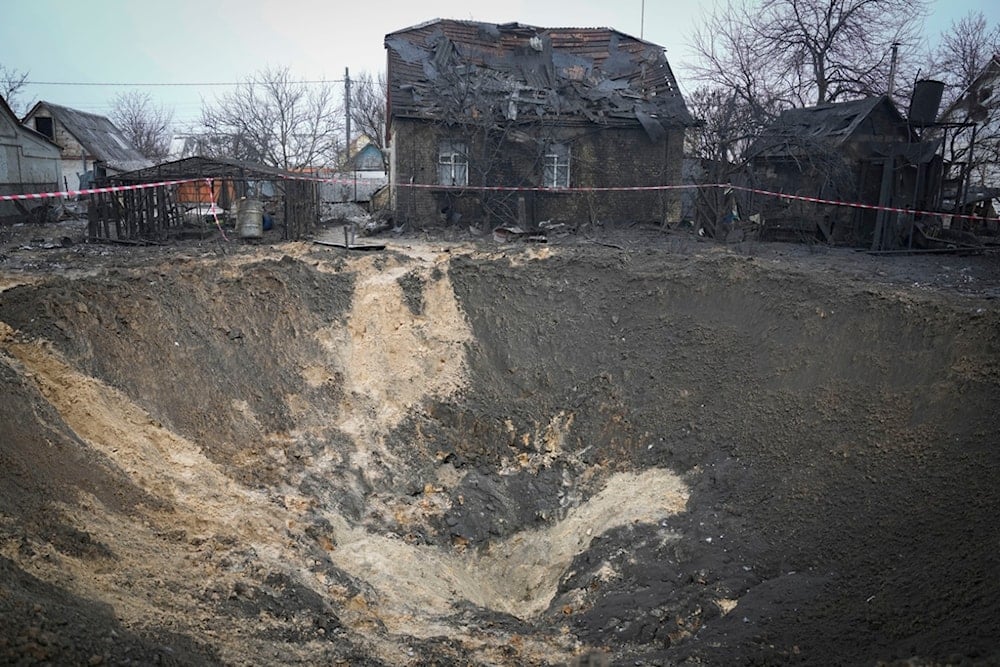IMF warns of up to 7% global GDP loss due to Ukraine conflict
Gopinath highlighted that the losses could be particularly significant in lower-income countries and emerging markets.
-

A general view of the crater at a site of a recent missile attack in Kiev, Ukraine, Monday, Dec. 11, 2023 (AP Photo/Efrem Lukatsky)
On Monday, the International Monetary Fund (IMF) reported that the economic repercussions of the Ukraine conflict, resulting in the global economy's division into two blocs, are estimated to range up to 7% of GDP.
"If the global economy were to fragment into two blocs based on UN voting on the 2022 Ukraine Resolution and trade between the two blocs were eliminated, global losses are estimated to be about 2.5 percent of GDP. But depending on economies’ ability to adjust, the losses could reach as high as 7 percent of GDP," IMF First Deputy Managing Director Gita Gopinath said.
Gopinath highlighted that the losses could be particularly significant in lower-income countries and emerging markets.
"Foreign direct investment (FDI) fragmentation in a world divided into two blocs centered around the United States and China - with some countries remaining non-aligned - could result in long-term global losses of around 2% of GDP," she said.
Gopinath observed "clear signs" indicating the segmentation of global Foreign Direct Investment (FDI) along geopolitical lines.
"Announced FDI projects between blocs declined more than those within blocs after the onset of the war in Ukraine, while FDI to non-aligned countries sharply increased," Gopinath added.
Does the world really care that much?
While a lot of hype was generated around the conflict in Ukraine, it appears that the war on Gaza is drawing more attention.
This is particularly because the West is sponsoring an Israeli-led genocide which has resulted in a humanitarian crisis of unprecedented scale in the Gaza Strip.
There is a possibility that an upcoming bill at the US Congress may downplay funding for Ukraine at the expense of aiding "Israel."
The European Union is particularly bittersweet over the Ukraine conflict as the bloc has authorized at least €27 billion ($28.9 billion) in military assistance to Ukraine since last year.
In October of last year, Russian Foreign Minister Sergey Lavrov openly stated that the US is interested in weakening Europe militarily and de-industrializing it.
It seems that it is still the case since the entire bloc appears to be in the middle of another recession.
Read more: Making sense of a self-induced recession in Europe

 3 Min Read
3 Min Read








